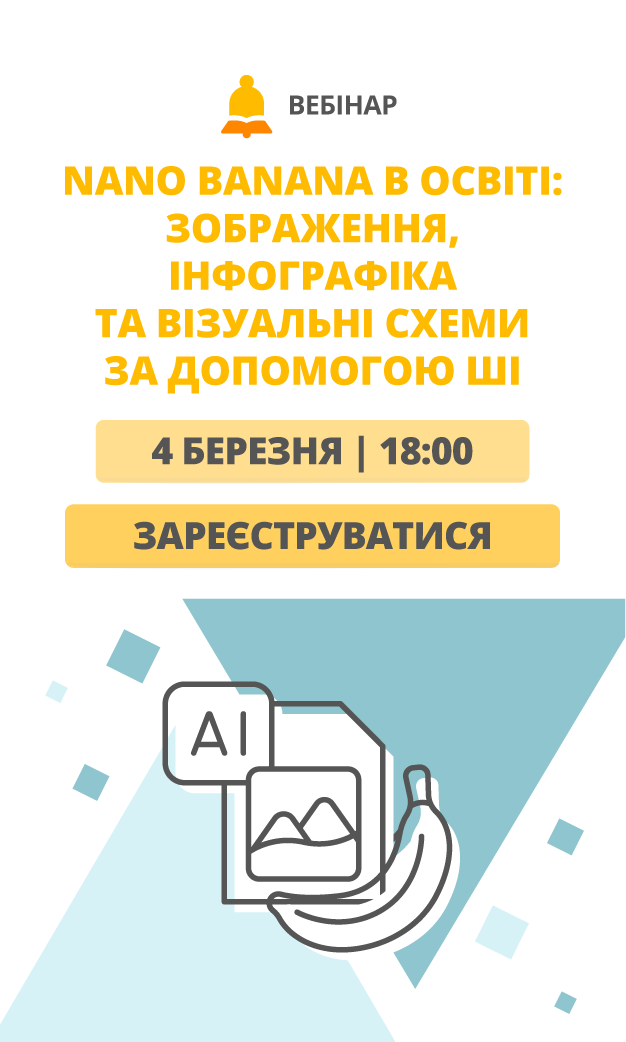Методичні рекомендації "WebQuest – a Popular Innovative Pedagogical Technology in Teaching English"

WebQuest – a Popular Innovative Pedagogical Technology in Teaching English
WebQuests are probably the most talked-about and widely used Web-based activities in today's classrooms.
The term "WebQuest" was first proposed by Bernie Dodge, a professor of educational technology at the University of San Diego (USA), in 1995. The author developed innovative Internet applications for integration into the teaching process of different subjects at different levels of learning. According to Bernie Dodge "A WebQuest is an inquiry-oriented activity in which some or all of the information that learners interact with comes from resources on the Internet”. In modern pedagogy WebQuest is seen as problem-solving task with the elements of role-playing and adventure. It is a kind of mini-project the material of which is taken from the World Wide Web.
A lot of WebQuest assignments are group projects where individuals are given specific tasks and roles to complete. In this way, WebQuests help show people how the Internet can be a tool that brings people together and facilitates communication and discussion.
WebQuests are designed to use learners' time correctly, to focus on using information rather than on looking for it. WebQuests are also a wonderful way of capturing students' imagination and allowing them to explore in a guided, meaningful manner.
WebQuests allow students to explore issues and find their own answers. Particularly with controversial issues - such as pollution, gambling, teenagers’ problems and nuclear waste disposal - students must do more than just memorize the information. They must process it in meaningful way and reach moral and ethical decisions guided by facts. The topics of WebQuests can be very diverse, and problematic tasks can differ in degree of complexity.
WebQuests promote critical thinking, develop problem-solving and creative skills, and provide the integration of technology into the curriculum. There are a lot of different sites which can be used to walk students through the quest.
A teacher who creates a WebQuest must have a high level of subject, methodological and infocommunication competence. WebQuests should never just be about finding information. Students engaging in WebQuests must be taught to process the information and build something new based on that. Sometimes, this can be a comparison between two obviously different things. Sometimes, WebQuests might ask students to research a problem but come up with their own solution to it. Other times their task could be to learn as much as they can about a subject and then detail what they believe are the most important issues of the problem.
The results of the WebQuests can be presented in the form of an oral presentation, a computer presentation, an essay, a bouclet or a web page.
According to Dr. Dodge, the best way to know if a teacher has created a successful WebQuest is if his/her students come up with different answers to the same problem.
The use of WebQuests in language learning requires students to have a corresponding level of language skills to work with authentic Internet resources. That’s why the effective integration of WebQuests in the learning process of foreign languages is possible in cases where the WebQuest:
- is a creative task that completes the study of a topic;
- is accompanied by training lexico-grammatical exercises based on the language material used in the WebQuest. The implementation of such exercises can either precede the work on the quest, or be carried out in parallel with it.
Bernie Dodge highlights three principles for classifying WebQuests:
1. By the subject content: mono and inter-subject WebQuests.
2. By type of tasks performed by students: retelling tasks, compilation tasks, mystery tasks, journalistic tasks, design tasks, creative product tasks, consensus building tasks, persuasion tasks, self-knowledge tasks, analytical tasks, judgment tasks, scientific tasks.
3. By the duration of their implementation: short-term and long-term WebQuests.
1. Short Term WebQuests
At the end of short term WebQuest a student will come in contact with a significant amount of new information which he will understand quite well. A short term WebQuest aims to acquiring basic knowledge on a particular topic. It can cover a period of about one or a few lessons during which students review the selected sites to find the information and use it in the classroom to achieve their educational goals.
2. Long Term WebQuests
After completing this WebQuest a student would have analysed the information, transformed it in some way, and demonstrated an understanding of the material by creating something new. This is the main difference between short- and long-term WebQuests - in the latter case, students have to change the received information, turning it into a new product: a report, a presentation, an interview or an investigation. Long WebQuests can take several weeks or even a semester.
The process of creating a WebQuest includes:
• topic selection
• choice of Internet service and design
• selection of tasks, web resources, and planned results
• filling the WebQuest with the content
A teacher also must remember that every WebQuest has six vital parts. If a teacher wants to create his/her own WebQuest, it’s necessary to understand each of them. Actually this activity includes such sections:
Introduction. This is where a teacher defines the subject of this particular WebQuest and tells the group what their roles are. The teacher’s goal is to engage the students and make them motivated to complete the activity, so it’s often wise to choose topics that reflect their everyday life or correspond to their interests and purposes.
Task. In the Task section a teacher details exactly what he/she expecsts the students to accomplish by the end of the activity. In other words this section describes the activity's end product. Some WebQuests require groups to create webpages or other kinds of multimedia presentations utilizing the technology they are available. Others propose to write a suggestion essay or an article to a local newspaper. Actually there is an abundance of interesting ideas.
Process. In this section a teacher explains strategies students should use to complete the task. He/She gives the steps that students have to take to accomplish the task. A teacher tells them what they are expected to look for and how they should use that information in order to create something new.
Resources. Here a teacher gives the list of acceptable resources for students to complete the task. For most WebQuests, it’s very important that a teacher does his/her own research first and then carefully chooses the resources what he/she wants the students to use. Letting them choose their own resources can harm the outcome by making the activity seem like more of a fact-finding mission than one in which they are interpreting information.
Evaluation. At this stage a teacher measures the results of the studends’ activity. He/She uses special rubrics to evaluate the work of the students. While creating these rubrics, a teacher must ensure the evaluation of the specific task that was set for students in the way that everyone’s scores are well-proved, clear, and fair. The goals also must be made clear to the class beforhand, and it’s wise to show them examples of previous WebQuests that a teacher concider to be poor, acceptable, and excellent so that they have a specific idea of what to strive for.
At this stage, students can be also engaged in self-evaluation. They can compare their work with the one performed by other students. They can analyze what they have learned or have achieved through their own efforts.
Conclusion. This is where both the students and the teacher can talk about what went wrong, what went right, what they liked and disliked, and offer any suggestions they have for changing the quest to make it better or more appealing.
Once a teacher understands how each section of a WebQuest works, he/she can either design his/her own from scratch or seek out examples and templates. There are some special sites that offer web-based software to make WebQuests, e.g.
https://sites.google.com/site/studentwebquesttemplate/
http://www.teach-nology.com/web_tools/web_site/
To sum up we may say that WebQuest is a new format of the lesson or extracurricular activities with a focus on students’ cognitive development, their research work, where the bulk of information is got from Internet resources. Thanks to the constructive approach to learning, students do not only obtain information from the Internet, but also govern their activities while completing the tasks, and, what is more important, develop higher level of thinking, i.g. become autonomous learners. WebQuests make it possible to vary the learning process, make it lively and interesting, and increase its effectiveness.
Resources:
1. Andrianes Pinantoan. Webquests – An Introductory Guide and Resources
http://www.opencolleges.edu.au/informed/teacher-resources/webquests/
2. Bernie Dodge. Some Thoughts About WebQuests
http://webquest.org/sdsu/about_webquests.html
3. Marchuk O.T
http://zunal.com/webquest.php?w=346666
4. Дика С.В. Використання інноваційної освітньої технології «Веб-квест» на уроках англійської мови
5. Ільченко Олена Василівна. Використання web-квестів у навчально-виховному процесі. http://osvita.ua/school/lessons_summary/proftech/32834/
6. Томчук М.С. Web-квест – новітня технологія роботи з інформаційними Інтернет-ресурсами.
https://drive.google.com/file/d/0BxpXkTlTr7mxa1FRSkI0RmQzSnc/edit
1


про публікацію авторської розробки
Додати розробку
